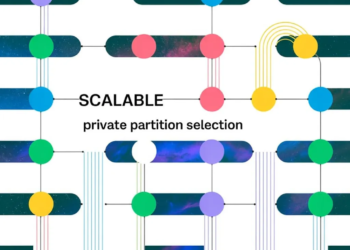
Suppose you were shown that an artificial intelligence tool offers accurate predictions about some stocks you own. How would you feel about using it? Now, suppose you are applying for a job at a company where the HR department uses an AI system to screen resumes. Would you be comfortable with that?
A new study finds that people are neither entirely enthusiastic nor totally averse to AI. Rather than falling into camps of techno-optimists and Luddites, people are discerning about the practical upshot of using AI, case by case.
“We propose that AI appreciation occurs when AI is perceived as being more capable than humans and personalization is perceived as being unnecessary in a given decision context,” says MIT Professor Jackson Lu, co-author of a newly published paper detailing the study’s results. “AI aversion occurs when either of these conditions is not met, and AI appreciation occurs only when both conditions are satisfied.”
The paper, “AI Aversion or Appreciation? A Capability–Personalization Framework and a Meta-Analytic Review,” appears in Psychological Bulletin. The paper has eight co-authors, including Lu, who is the Career Development Associate Professor of Work and Organization Studies at the MIT Sloan School of Management.
New framework adds insight
People’s reactions to AI have long been subject to extensive debate, often producing seemingly disparate findings. An influential 2015 paper on “algorithm aversion” found that people are less forgiving of AI-generated errors than of human errors, whereas a widely noted 2019 paper on “algorithm appreciation” found that people preferred advice from AI, compared to advice from humans.
To reconcile these mixed findings, Lu and his co-authors conducted a meta-analysis of 163 prior studies that compared people’s preferences for AI versus humans. The researchers tested whether the data supported their proposed “Capability–Personalization Framework” — the idea that in a given context, both the perceived capability of AI and the perceived necessity for personalization shape our preferences for either AI or humans.
Across the 163 studies, the research team analyzed over 82,000 reactions to 93 distinct “decision contexts” — for instance, whether or not participants would feel comfortable with AI being used in cancer diagnoses. The analysis confirmed that the Capability–Personalization Framework indeed helps account for people’s preferences.
“The meta-analysis supported our theoretical framework,” Lu says. “Both dimensions are important: Individuals evaluate whether or not AI is more capable than people at a given task, and whether the task calls for personalization. People will prefer AI only if they think the AI is more capable than humans and the task is nonpersonal.”
He adds: “The key idea here is that high perceived capability alone does not guarantee AI appreciation. Personalization matters too.”
For example, people tend to favor AI when it comes to detecting fraud or sorting large datasets — areas where AI’s abilities exceed those of humans in speed and scale, and personalization is not required. But they are more resistant to AI in contexts like therapy, job interviews, or medical diagnoses, where they feel a human is better able to recognize their unique circumstances.
“People have a fundamental desire to see themselves as unique and distinct from other people,” Lu says. “AI is often viewed as impersonal and operating in a rote manner. Even if the AI is trained on a wealth of data, people feel AI can’t grasp their personal situations. They want a human recruiter, a human doctor who can see them as distinct from other people.”
Context also matters: From tangibility to unemployment
The study also uncovered other factors that influence individuals’ preferences for AI. For instance, AI appreciation is more pronounced for tangible robots than for intangible algorithms.
Economic context also matters. In countries with lower unemployment, AI appreciation is more pronounced.
“It makes intuitive sense,” Lu says. “If you worry about being replaced by AI, you’re less likely to embrace it.”
Lu is continuing to examine people’s complex and evolving attitudes toward AI. While he does not view the current meta-analysis as the last word on the matter, he hopes the Capability–Personalization Framework offers a valuable lens for understanding how people evaluate AI across different contexts.
“We’re not claiming perceived capability and personalization are the only two dimensions that matter, but according to our meta-analysis, these two dimensions capture much of what shapes people’s preferences for AI versus humans across a wide range of studies,” Lu concludes.
In addition to Lu, the paper’s co-authors are Xin Qin, Chen Chen, Hansen Zhou, Xiaowei Dong, and Limei Cao of Sun Yat-sen University; Xiang Zhou of Shenzhen University; and Dongyuan Wu of Fudan University.
The research was supported, in part, by grants to Qin and Wu from the National Natural Science Foundation of China.


















